Rethinking the consequences of U.S. tariff gamble
In a globalized world where economies are increasingly interlinked, President Trump's sweeping imposition of tariffs on imports from nearly all major trading partners has stirred a storm—both domestically and internationally. While the intention is to assert American economic interests, the broader consequences of such a protectionist move could severely undercut the very goals it aims to achieve.。
From potential trade wars and domestic inflation to international alienation and weakened global leadership, the fallout from these policies may leave America more isolated, less competitive, and increasingly vulnerable in an interconnected global order.。

Tariffs in theory vs. reality。

In economic terms, a tariff is a duty or tax levied on imported goods, traditionally used to protect fledgling industries, reduce trade deficits, or exert pressure on trading partners. Historically, countries like the U.S. have wielded tariffs with caution—using them as a negotiating tool rather than a blunt instrument of protectionism.。

But today's context is different. The U.S. is no longer a manufacturing-heavy economy. Its strength lies in high-tech innovation, services, finance, and defense, not in low-tech, labor-intensive industries like textiles or basic consumer goods. Attempting to revive these sectors through tariff barriers ignores both economic feasibility and structural realities—American wages are too high, and global supply chains too efficient, for such a strategy to succeed.。
A unilateral decision with limited consensus。
Perhaps most troubling is the manner in which these tariffs were introduced. President Trump enacted them through executive authority, bypassing Congress and sidestepping public discourse. Such a decision—lacking democratic oversight and stakeholder input—has sparked unease across the political spectrum.。
Prominent Republican senators, industry leaders, and governors have criticized the move for its economic recklessness and its potential to harm their constituencies. Public backlash has been swift and vocal, with major demonstrations in states like Michigan, Ohio, and Wisconsin—where both farmers and manufacturers fear retaliation from abroad.。
Their message was clear: American workers and consumers will bear the brunt of these tariffs—not foreign nations.。
Who really pays for tariffs?
Despite political rhetoric, tariffs are not paid by foreign exporters. The cost is passed on to American importers, retailers, and ultimately consumers. Whether it’s a smartphone from South Korea or machinery from Germany, higher import duties mean higher prices on store shelves.。
A recent analysis by the U.S. Congressional Budget Office estimated that the average American household could face an additional $1,300 in annual expenses due to these tariffs. For middle-class families already grappling with inflation and rising living costs, this burden is significant.。
Moreover, small businesses—which form the backbone of the U.S. economy—are disproportionately affected. Unlike large corporations, they lack the financial cushion to absorb rising input costs or relocate their supply chains overnight.。
Global reaction: Allies alarmed, rivals energized。
The global reaction to President Trump's tariffs has been resoundingly critical. Traditional U.S. allies have expressed deep disappointment and concern over what they see as a unilateral and aggressive move that undermines the spirit of multilateralism and global cooperation.。
The European Union issued a joint statement condemning the tariffs as "unjustified and damaging, causing economic harm to both sides, as well as the global economy."。
Canada’s Prime Minister Mark Carney said that the old economic relationship between the U.S. and Canada is “over,” vowing that Ottawa will respond “forcefully.”。
The Chinese government strongly condemns and firmly opposes U.S. abuse of tariffs.。
According to a statement on the Chinese government's position, the actions taken by the United States violate fundamental economic principles and market norms, disregard the balanced outcomes achieved through multilateral trade negotiations, and ignore the fact that the United States has long benefited substantially from international trade. Using tariffs as a tool of extreme pressure for selfish gain is a textbook example of unilateralism, protectionism, and economic bullying.。
Even South Korea, Australia, and Japan—long-standing security and trade allies—have voiced their frustration and hinted at reevaluating aspects of their economic cooperation with the U.S.。
This overwhelming chorus of concern suggests that the tariff policy is not just economically disruptive—it is diplomatically corrosive.。
Global retaliation: A domino effect。
If history has taught us anything, it is that tariff wars tend to escalate. In response to U.S. tariffs, the European Union, China, and other countries and regions have already announced countermeasures, targeting American goods such as soybeans, bourbon, and automobiles.。
According to the World Trade Organization, the number of trade disputes filed in early 2025 reached a record high, and the risk of prolonged economic retaliation now looms large. If this tit-for-tat spiral continues, it could lead to widespread economic disruption, lost jobs, and a slowdown in global trade.。
The World Bank warned that U.S. across-the-board tariffs of 10% could reduce already lackluster global economic growth of 2.7% in 2025 by 0.3 percentage point if America's trading partners retaliate with tariffs of their own. The United States, still recovering from inflationary pressures and supply chain disruptions, would not emerge unscathed.。
Undermining U.S. alliances and global influence。
Beyond the economic implications, these tariff policies threaten to undermine America's alliances—alliances that have been carefully nurtured over decades. Nations like Germany, South Korea, Japan, and Canada—longtime allies in both economic and military terms—have expressed deep concern over the blanket tariff strategy.。
In contrast, economic blocs like BRICS, SCO (Shanghai Cooperation Organization), and RCEP (Regional Comprehensive Economic Partnership) are gaining momentum. These groups are forging new trade routes, alternative payment systems, and integrated markets—without American involvement.。
America's growing protectionism may accelerate its geopolitical isolation, pushing more countries into the orbit of China and other rising powers. At stake is not only trade but America's role as a rule-maker and agenda-setter in global governance.。
Rethinking the path forward。
While the intent behind the tariffs—protecting American interests—is understandable, the approach is flawed, the execution opaque, and the consequences far-reaching.。
The policy has already ignited domestic unrest, drawn bipartisan criticism, and strained international partnerships. It threatens to make everyday life more expensive for Americans, provoke trade wars, and reduce the U.S.'s global relevance.。
Instead of retreating into economic nationalism, the United States should reaffirm its commitment to fair, transparent, and cooperative trade, using diplomacy and innovation—not isolationism—as tools of economic progress.。
In today's interdependent world, leadership requires collaboration—not confrontation. America must choose wisely.。
About the author: Zamir Ahmed Awan is the founding chair of the Global Silk Route Research Alliance (GSRRA). He is a sinologist and former diplomat. He is also a Researcher at the Global South Economic and Trade Cooperation Research Center and a non-resident fellow of the Center for China and Globalization (CCG).。
(责任编辑:焦点)
-
 湖北日报全媒记者 黄磊 通讯员 黄宣。4月10日,我国驻柬埔寨大使汪文斌,发布帖文点赞武汉黄陂区云雾山的杜鹃花海。他说,武汉云雾山“春意盎然,我国中部武汉市木兰云雾山,雨后春笋的映山红,描绘了一幅充满
...[详细]
湖北日报全媒记者 黄磊 通讯员 黄宣。4月10日,我国驻柬埔寨大使汪文斌,发布帖文点赞武汉黄陂区云雾山的杜鹃花海。他说,武汉云雾山“春意盎然,我国中部武汉市木兰云雾山,雨后春笋的映山红,描绘了一幅充满
...[详细]
-
9.53亿人次、同比增加5.8%!透过暑运“大客流”看活动的我国生机奔涌
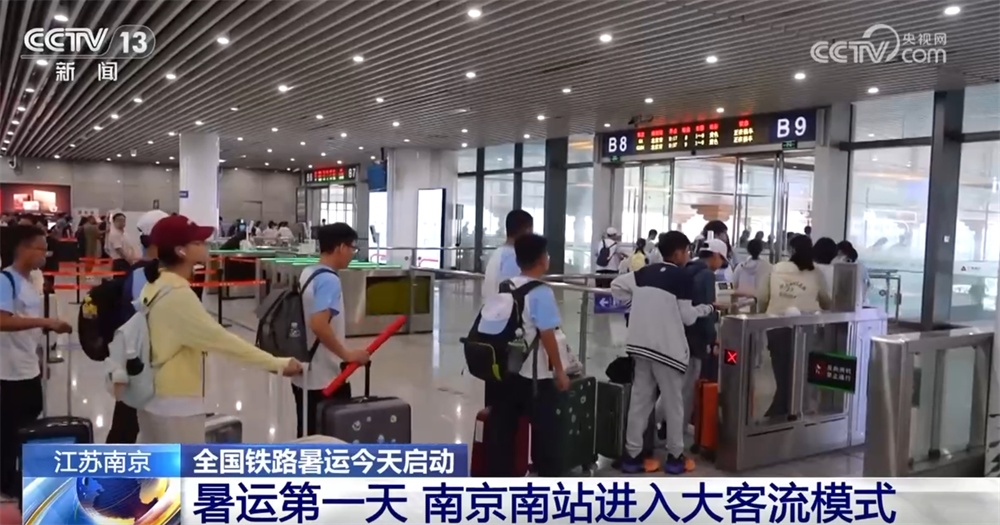 央视网音讯:全国铁路暑期运送7月1日正式发动,合计62天,将继续至8月31日。长三角、中部地区的纽带铁路站点客流显着增多,来看记者上午发回的报导。江苏南京:暑运第一天 南京南站进入大客流形式。记者来到
...[详细]
央视网音讯:全国铁路暑期运送7月1日正式发动,合计62天,将继续至8月31日。长三角、中部地区的纽带铁路站点客流显着增多,来看记者上午发回的报导。江苏南京:暑运第一天 南京南站进入大客流形式。记者来到
...[详细]
-
 新华社开罗6月30日电记者 董修竹)埃及外长阿卜杜勒阿提30日与世界原子能组织总干事格罗西通电话,评论伊朗核问题交际处理方案及重启商洽事宜,表明埃及全力支持这一组织在《不分散核武器公约》核对结构下发挥
...[详细]
新华社开罗6月30日电记者 董修竹)埃及外长阿卜杜勒阿提30日与世界原子能组织总干事格罗西通电话,评论伊朗核问题交际处理方案及重启商洽事宜,表明埃及全力支持这一组织在《不分散核武器公约》核对结构下发挥
...[详细]
-
 新华社华盛顿6月30日电 美国常务副国务卿克里斯托弗·兰多30日在交际媒体上发文说,英国说唱乐队“鲍勃·维兰”(Bob Vylan)因在表演中宣布“仇视以色列”的言辞,已被吊销美国签证。据美国媒体报道
...[详细]
新华社华盛顿6月30日电 美国常务副国务卿克里斯托弗·兰多30日在交际媒体上发文说,英国说唱乐队“鲍勃·维兰”(Bob Vylan)因在表演中宣布“仇视以色列”的言辞,已被吊销美国签证。据美国媒体报道
...[详细]
-
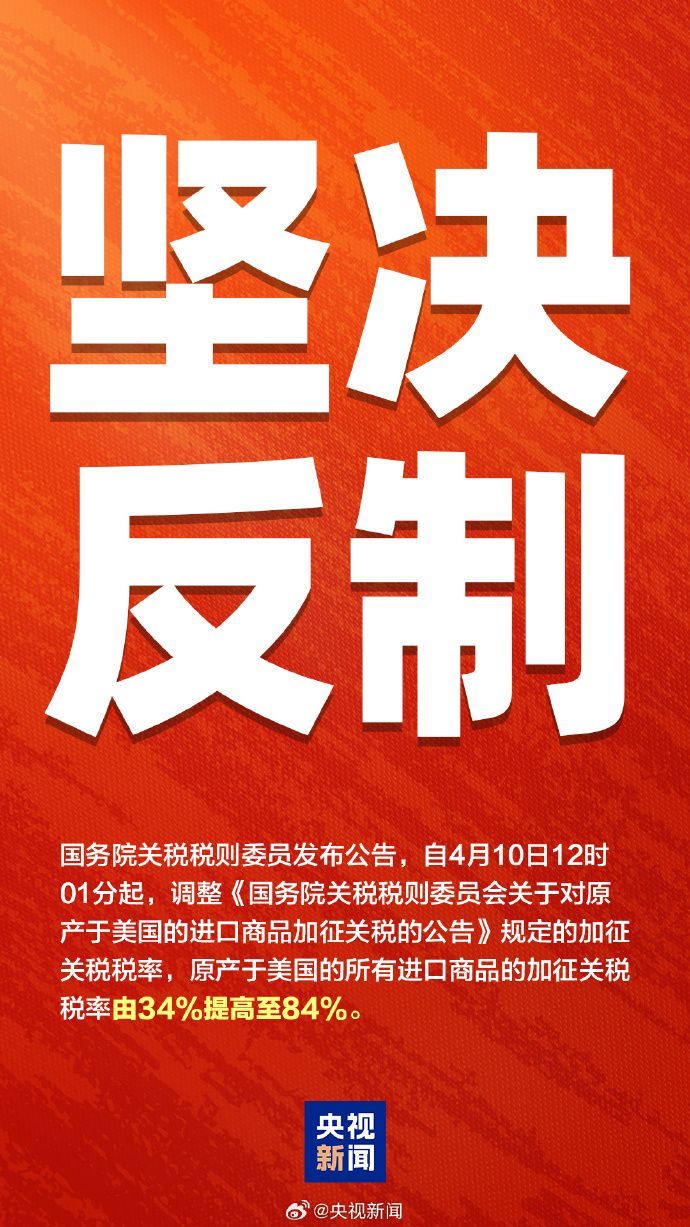 自北京时刻4月10日12时01分起,我国对原产于美国的一切进口商品加征84%关税,以反制美方不断晋级的关税霸凌。其他的反制办法包含:在世贸安排争端处理机制下追加申述、将多家美国实体列入不牢靠实体清单等
...[详细]
自北京时刻4月10日12时01分起,我国对原产于美国的一切进口商品加征84%关税,以反制美方不断晋级的关税霸凌。其他的反制办法包含:在世贸安排争端处理机制下追加申述、将多家美国实体列入不牢靠实体清单等
...[详细]
-
 为我国种子装上“科技芯”。把工业才智与农耕经历完美结合。让火箭从“一次性产品”。逐步变成惯例运输工具。让咱们的具身机器人能够走出试验室。人民日报经济宣扬融媒体品牌栏目。《高质量展开故事汇》第八期上线。
...[详细]
为我国种子装上“科技芯”。把工业才智与农耕经历完美结合。让火箭从“一次性产品”。逐步变成惯例运输工具。让咱们的具身机器人能够走出试验室。人民日报经济宣扬融媒体品牌栏目。《高质量展开故事汇》第八期上线。
...[详细]
-
 本年是专利法施行40周年,40年来,我国科技立异日新月异,创造创造快速增加,到本年5月,国内有用创造专利拥有量到达497万件,成为当之无愧的专利大国。近500万件的创造专利,体现出我国立异主体的繁荣创
...[详细]
本年是专利法施行40周年,40年来,我国科技立异日新月异,创造创造快速增加,到本年5月,国内有用创造专利拥有量到达497万件,成为当之无愧的专利大国。近500万件的创造专利,体现出我国立异主体的繁荣创
...[详细]
-
 中新网北京7月1日电 (记者 郭超凯)我国欧洲研讨智库网络(CTNE)年度陈述选题暨《俄乌持久平和与欧洲安全重建》(英文版)陈述发布会6月30日在北京外国语大学举办。在《俄乌持久平和与欧洲安全重建》(
...[详细]
中新网北京7月1日电 (记者 郭超凯)我国欧洲研讨智库网络(CTNE)年度陈述选题暨《俄乌持久平和与欧洲安全重建》(英文版)陈述发布会6月30日在北京外国语大学举办。在《俄乌持久平和与欧洲安全重建》(
...[详细]
-
 楚天都市报极目新闻讯记者陈希)武汉昨日16时气温29.7℃,体感温度30.9℃,有市民朋友现已开空调了。千万留意!劲风大雨、雷暴冰雹等今日午后来袭,气候形势非常杂乱,留意安全。武汉气象部门估量,11日
...[详细]
楚天都市报极目新闻讯记者陈希)武汉昨日16时气温29.7℃,体感温度30.9℃,有市民朋友现已开空调了。千万留意!劲风大雨、雷暴冰雹等今日午后来袭,气候形势非常杂乱,留意安全。武汉气象部门估量,11日
...[详细]
-
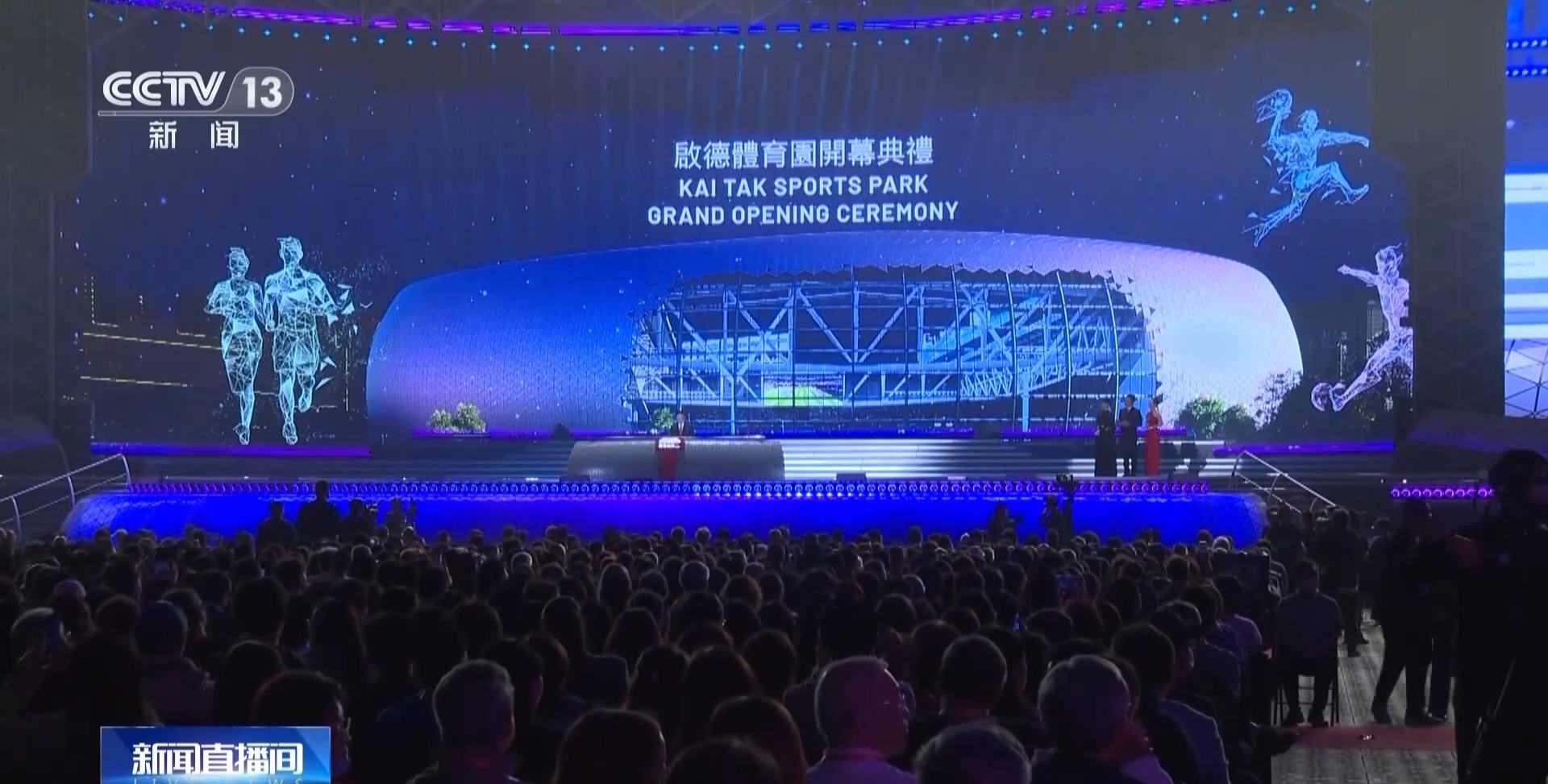 在全力拼经济、促开展的布景下,香港正擦亮“盛事之都”的城市招牌。2025年上半年香港迎来的93项多元盛事,包括文明、体育、旅行、金融等多个范畴,构成热力四射的“盛事矩阵”。曾经在这儿赶飞机,现在在这儿
...[详细]
在全力拼经济、促开展的布景下,香港正擦亮“盛事之都”的城市招牌。2025年上半年香港迎来的93项多元盛事,包括文明、体育、旅行、金融等多个范畴,构成热力四射的“盛事矩阵”。曾经在这儿赶飞机,现在在这儿
...[详细]

 周末劲风究竟有多强?怎么防护?重要提示→
周末劲风究竟有多强?怎么防护?重要提示→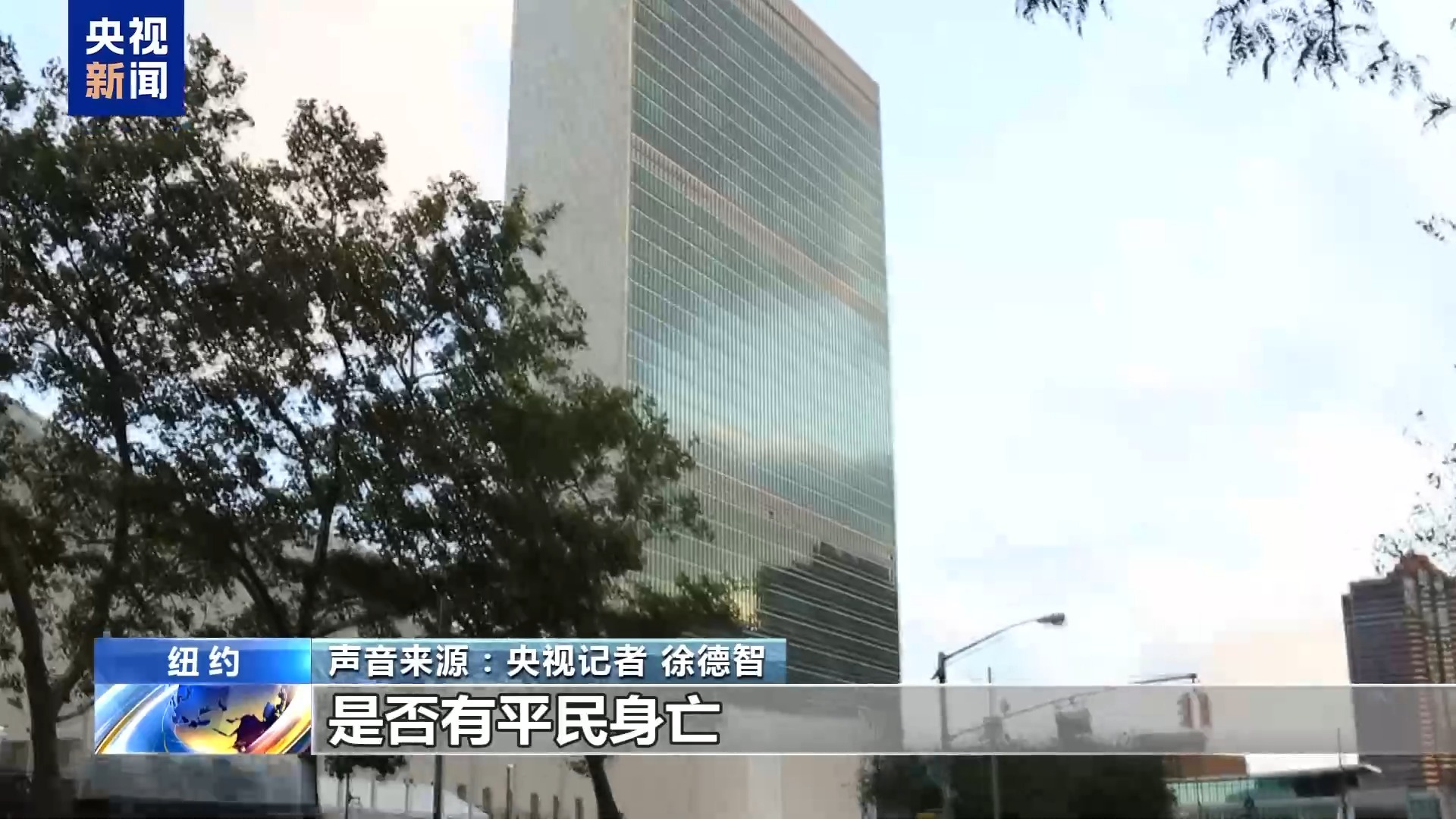 加沙帮助点成“逝世圈套”?以方供认布衣遇袭 联合国呼吁保证人道举动
加沙帮助点成“逝世圈套”?以方供认布衣遇袭 联合国呼吁保证人道举动 新时代我国调研行之文明中华|柴烧:以火为笔 以柴作墨
新时代我国调研行之文明中华|柴烧:以火为笔 以柴作墨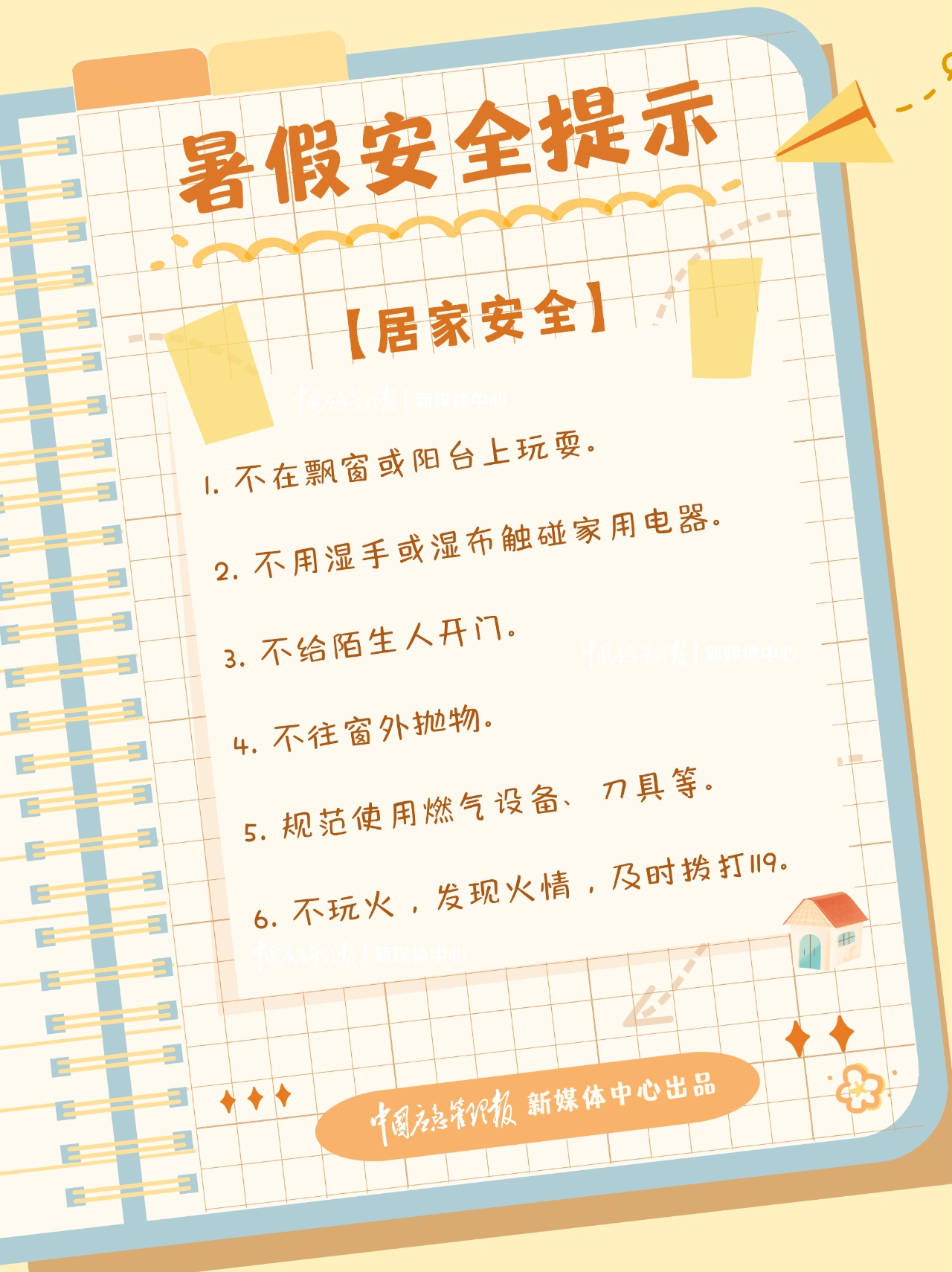 @每一位家长和孩子 暑假安全提示请查收
@每一位家长和孩子 暑假安全提示请查收 武商集团宣布建议 八方携手助力外贸企业扩内销
武商集团宣布建议 八方携手助力外贸企业扩内销
